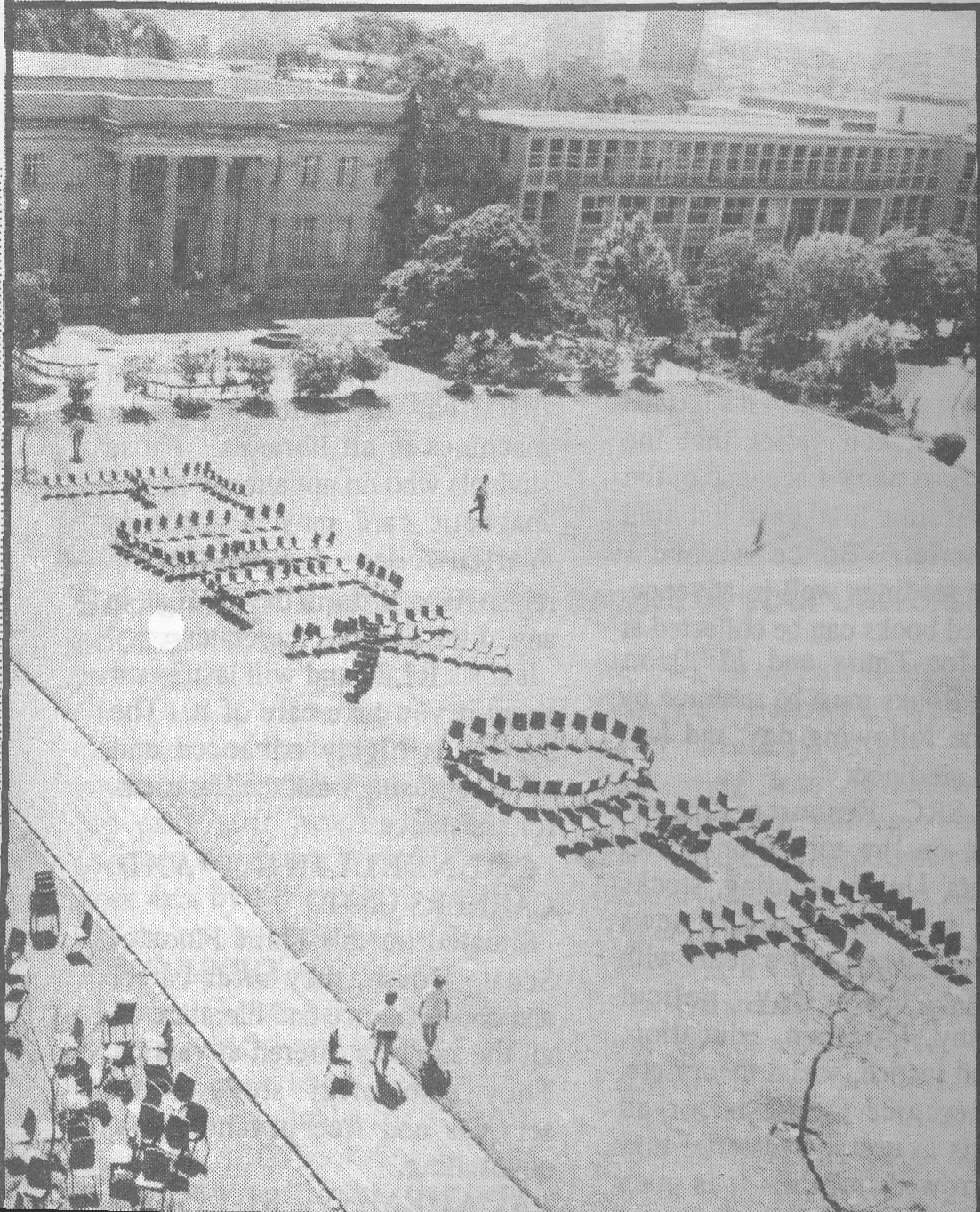We
must march for academic freedom in science. In both South Africa and
Ohio I’ve had to stand up for academic freedom; for science, not
silence. It is sad that we need to do this again and again. The
short message of this post is that protests and marches can effect
change, both big and small. The longer message follows, about a
bigger change. I promise that it is worth the long read, especially
the poignant ending that can inspire us all. Minds do change.
During
apartheid, the South African Minister of Education proposed
draconian measures that limited our academic freedoms at The
University of the Witwatersrand in Johannesburg. There were many
small protests. In order to more effectively protest the
restrictions proposed by the Minister of Education, a bigger event
was planned for the lawn in the center of campus. A stage was
erected, and chairs were arranged so that students and faculty could
listen to speeches decrying the Minister’s move. This was to be
followed by a march around the university, which the authorities had
declared illegal.
On the day of the event, the speeches were as resolute as they were
resounding. The final speech came from my boss in the Department of
Anatomy, Professor Phillip Tobias. He had always been renowned as a
great orator, and a vocal critic of apartheid, but he surpassed
himself that day. But toward the end of the speech, with Tobias
saying slowly but resolutely that “we are ANGRY,” helicopters of the
apartheid police started flying overhead, in anticipation of the
illegal march. It made it difficult to hear the final evocative
words, and angered the united assembly of students and faculty. But
the sound of the helicopters only magnified the thunderous applause
at the end of the speech.
It took some time to organize the assembly for the march, so my
students and I, standing on the steps of the 'Great Hall,' were
staring up at the helicopters and down at the lawn where we had
listened to the speeches. One of my incensed students suggested that
we send a message to the helicopters by lying down and spelling
something out. We quickly figured out how many people we would need
to write out our message with bodies lying on the ground, and
started recruiting students. This being a fairly strict South
African police regime we proposing to taunt, only a few were willing
to participate, and not enough. So as I gazed to the lawn, I came up
with another plan, and shouted to my students “The chairs! We can
spell it out with the chairs.”
We ran down and got to work, being careful to keep our backs
to the helicopters, lest we be filmed and identified. I was
particularly vulnerable to being identified, being both a foreigner
and wearing my academic robe. But my adrenalin kicked in and off I
went. As a kid in the USA in the 1960s I had been intrigued by the
civil rights and Vietnam war protests, but was too young to
participate, let alone understand. Now was finally my moment, and I
went for it full force. A picture of the message we sent to the
police in the helicopters above is to the left of he screen.
After writing our quaint message, we still had time to join the
illegal march around the university, and ran to join the crowd.
Along one side of the university, as we progressed, the road was
lined with the South African police. About two dozen police aimed
their rifles at the marchers. The students quickly scattered in the
face of the threat, as well they should have. But something got into
me, probably the adrenalin again. Maybe I was brave, maybe I was
stupid, maybe I thought that my academic robe was bullet-proof vest.
Certainly I was incensed, so I stood my ground, crossed my arms, and
glared back at those police and their rifles.
Now you must know that the police had rubber bullets in their guns,
and I knew that. But those can hurt or put an eye out (as our
mothers would have warned us.) Yet to this day I can feel the
determination for academic freedom and fair opportunities for
education that I felt then. I did not get shot, but the story does
not end here.
The students regrouped en masse, in front of the police brigade, and
began singing politically motivated songs. It was a stand off that
lasted roughly half an hour while a university administrator who had
been hit by a rubber bullet on another occasion, negotiated with the
police. It was agreed that we could sing one more song, and the
natural choice was Nkosi Sikelel' iAfrika. It means “God Bless
Africa,” and was a rallying call for the apartheid resistance
movement; it is now South Africa’s national anthem.
As soon as we started singing, the police broke their agreement and
lobbed tear gas canisters at us. I wasn’t sure whether to be excited
or distressed. Maybe the police on the ground got word of our little
message to the helicopters on the campus lawn?
Whatever the case may have been, what caught my attention was that
suddenly everybody started lighting up cigarettes. Very few had been
smoking up to this point, so it seemed like an odd time to me. But
it turns out that, right or not, there is a belief that smoking
cigarettes helps you open up your lung passage ways when you’ve
inhaled tear gas. So somebody gave me a cigarette, and I once again
joined the behavior of the crowd. It didn’t hurt, that’s for sure.
The lessons I learned that day were these:
Never be afraid to stand up for your convictions, and always take a
pack of cigarettes to a protest that might involve tear gas. As time
went by, however, I learned a greater lesson. Yes, one must stand by
one’s convictions, but one must always be open to reexamining them.
Such was the case with that notorious Minister of Education who
tried to impose apartheid restrictions on our university. He later
became president of South Africa, and, with an apparent change of
heart, went on to set the stage for the end of apartheid. He freed
apartheid resistance leader Nelson Mandela from prison, and
eventually shared the Nobel Peace prize with Mandela. His name was
F.W. de Klerk.
www.riddledchain.org

